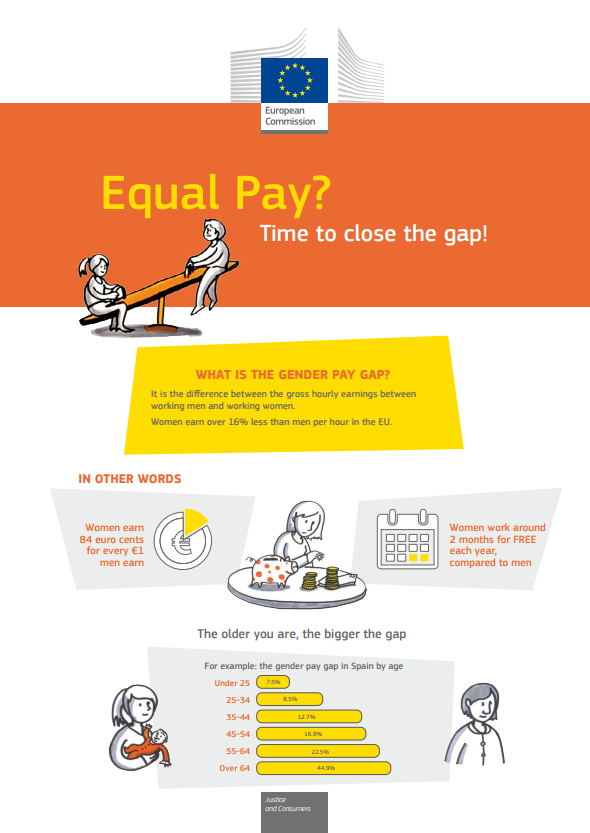Gender pay gap is a significant part of gender discrimination across all business sectors and maritime included. Recent ILOSTAT data showed that the median gender wage gap for 115 countries with available data is 14% in favor of men. In shipping, the latest survey by HR Consulting from Spinnaker Global showed men earn almost 44% more than women.
Gender pay gap is the difference between the gross hourly earnings between working men and working women.
The EU has also shed specific focus on tackling gender discrimination in the workforce.
Key facts on gender pay gap in the EU
The EU Commission has issued the following infographic, on the occasion of the Equal Pay Day in November 2019.
The infographic provides the key facts and myths on gender pay gap in the EU:
Myths around gender pay gap
Men earn more than women, that’s inevitable isn’t it?
- “More women work part-time, so they should earn less.” – WRONG: Working fewer hours a week means you should take home less pay per month, NOT less pay per hour.
- “Women earn less because they choose lower earning jobs.” – WRONG: Women tend to earn less per hour than men for the same job whether it is a highly-skilled profession like a doctor or nurse, or a lower-skilled job such as a salesperson. The gender pay gap exists across our economy and in all sectors and occupations.
- “Men are better educated, so should earn more”. – WRONG: Today almost 60% of graduates in the EU are women.
- “The gender pay gap has been around for so long, there is nothing we can do about it.” – WRONG: The European Commission has developed an Action Plan which prioritizes eight areas for action to address the underlying causes of the gender pay gap.
The gender pay gap per EU country
Why should we fix it? Because:
- equality is at the root of European values.
- reaching pay equality would send a positive message about the fairness and transparency of our labour market.
- when a woman’s work is valued less, simply due to her gender, it affects her motivation, her efficiency and ultimately our overall productivity.
- women are part of our economy. Paying them fairly will have a positive economic impact
- tackling unequal pay also makes sure attracting the best talents, whatever their gender is, in organisations and companies.





































































